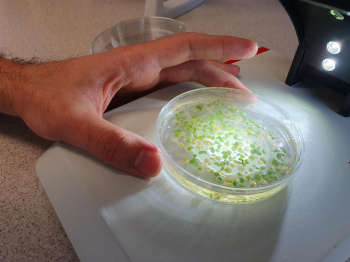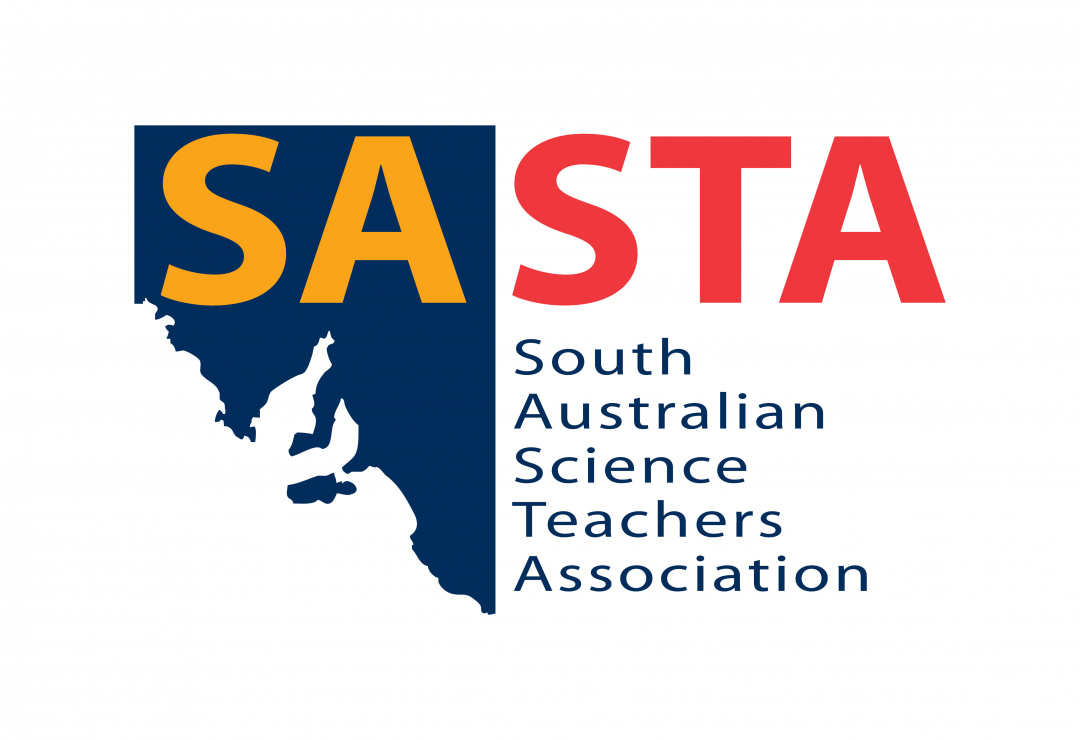Posted by SASTA
on 27/05/2024

With the Aurora Australis visible in the last couple of weeks you have probably spent some time staring up at the stars. Maybe wondering about the next Moon mission, or what life on Mars could look like? Space is an ever-fascinating topic, and a subject that truly brings science as a human endeavour into focus. And with new space-inspired careers emerging every day, who knew you could become a Space Botanist, Space Lawyer, or even a Space Chef?
The Australian Research Council Centre of Excellence in Plants for Space is bringing together all aspects of growing plants in space, with the vision to enable human deep space exploration and improve on-Earth sustainability through plant and food redesign. Learning how to properly conduct space agriculture, with the intent of feeding astronauts for longer space travel, can teach us about how to increase sustainability in our current food production chains. Investigating what a balanced diet constitutes for an astronaut and how to best find the nutrients for it, shows us what a good diet could look like here on Earth – and what novel foods might be introduced to ensure we are getting our protein, vitamins and minerals!
Space agriculture is focused on understanding how plants can grow in the presence of high radiation and micro-gravity, but also learning how to grow crops in a highly controlled manner as Lunar and Martian surfaces are so hostile that it will only allow plants to develop indoors. Our future crop production could be supplemented with food growing in controlled environments as well, in vertical farms where aeroponics and hydroponics eliminate the use of soil and robots monitor the growth conditions of our lettuces, cabbage and herbs. The use of LED lights in vertical farms and indoor growth-rooms mimics day-night rhythms but can also contribute to the expression of different genes in plants. Further investigations into using this to use plants as little mini-bio-factories for compounds for pharmaceuticals and degradable bioplastics is ongoing.

Although plants are already being grown at the International Space Station, our first official Plants for Space crops will travel to the Moon in the so-called LEAF investigation, and includes seeds from red and green varieties of Brassica rapa (Wisconsin Fast Plants®), Wolffia (duckweed), and Arabidopsis thaliana. After a short stay on the Lunar surface, the seedlings will be brought back to Earth for further investigations to see how our plants did under the stress of excessive Lunar sunlight, radiation, and the vacuum of space.
The Plants for Space team is a nationwide centre with international links to a wide range of educational, technology and industry partners, and we are working on several outreach and engagement programs for students and teacher professional development on topics such as evolution (within the biology curriculum), nutritional value and GM foods (within the nutrition curriculum) and many others as we are developing our platform.
In Australia our researchers are located at the University of Western Australia, Flinders University, The University of Adelaide, The University of Melbourne and La Trobe University, and funded through the Australian Research Council. For more information you can find us online, on LinkedIn, Instagram and Facebook, or contact us directly through P4S_admin@adelaide.edu.au.
Dr Lieke van der Hulst
Communications and engagement officer (SA Node) ARC Centre of Excellence in Plants for Space
In this Section
Archive
- February 2026
- January 2026
- December 2025
- November 2025
- October 2025
- September 2025
- August 2025
- July 2025
- June 2025
- May 2025
- April 2025
- March 2025
- February 2025
- January 2025
- December 2024
- November 2024
- October 2024
- September 2024
- August 2024
- July 2024
- June 2024
- May 2024
- April 2024
- March 2024
- February 2024
- December 2023
- November 2023
- October 2023
- September 2023
- July 2023
- June 2023
- May 2023
- April 2023
- March 2023
- February 2023
- January 2023
- December 2022
- November 2022
- October 2022
- August 2022
- July 2022
- June 2022
- May 2022
- April 2022
- March 2022
- February 2022
- January 2022
- December 2021
- November 2021
- October 2021
- September 2021
- August 2021
- July 2021
- June 2021
- May 2021
- April 2021
- March 2021
- February 2021
- January 2021
- December 2020
- November 2020
- October 2020
- September 2020
- August 2020
- July 2020
- June 2020
- May 2020
- April 2020
- October 2018
- September 2018
- August 2018
- July 2018


